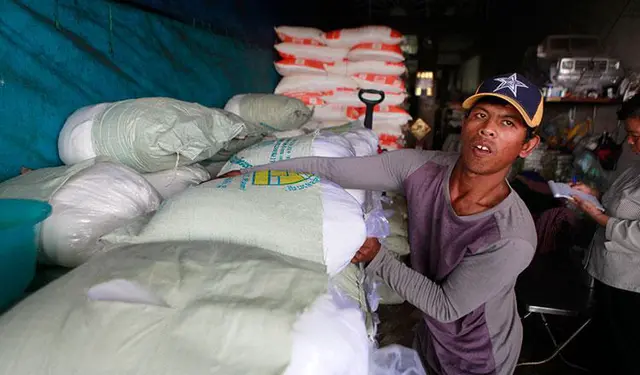Wheels have been set in motion to make history in Sri Lanka after incumbent President Mahinda Rajapaksa called for snap presidential elections on Jan. 8 and sought a third term.
The decision split his party with coalition partner, the nationalist Jathika Hela Urumaya (JHU). JHU immediately withdrew its support to the ruling party and formed a coalition with the main opposition United National Party and former President Chandrika Bandaranaike Kumarathunga.
Less than 48 hours after the president's announcement, the opposition announced their candidate Health Minister Maithreepala Sirisena, who is the secretary general of Rajapaksa's own party, the Sri Lanka Freedom Party (SLFP). Suddenly, the presidential race was blown wide open and what was initially seen as a largely one-sided race is now a fierce electoral contest between the incumbent and the opposition candidate.
The coalition has received the backing of most opposition parties as it aims to end Sri Lanka's decade old strong presidency with executive powers concentrated in one individual.
While most analysts were keen to back the ruling party during a fierce war with the Liberation Tamil Tigers of Eelam (LTTE), many now have been critical of it since hostilities ended in 2009, claiming that there has been rampant corruption and nepotism during its rule.
"I will end the executive presidency within 100 days once I become president," Sirisena said. He and several of his party- mates were stripped of their portfolios within hours after Sirisena's announcement of his candidacy.
Fisheries Minister Dr. Rajitha Senanayke and Education Services Deputy Minister Duminda Dissanayake were two heavyweights that crossed over to support Sirisena with speculations that other incumbent officials would move over to the opposition coalition.
But Power and Energy Minister Pavithra Wanniarachchi has accused Sirisena of being a traitor to his former party even as he assured Sri Lankans that there will be no more administration officials leaving the ruling party. "I want this election to be non-violent and free of vengeance. I don't want this campaign to be about mudslinging and character assassination," Sirisena said as election monitors wrote to the Elections Commissioner warning of violence in the weeks leading up to the polls on January 8.
Elections Commissioner Mahinda Deshapriya told local media that he was aware of the dangers in a closely-contested election and acknowledged he was considering establishing a special police unit to safeguard the election and to report directly to him.
People's Action for Free and Fair Elections (PAFFREL) Executive Director Rohana Hettiarachchi cited several shooting incidents in Madampe of the Puttalam district and Mawathagama of the Kurunegala district that were largely ignored by the police.
Hettiarachchi said as many as 350 police personnel attached to the Police Special Branch had been transferred on Nov. 18, two days before the declaration of the snap election. "In addition, 20 police officers have been transferred. Police transfers have a direct bearing on the election. The police are directly responsible for ensuring law and order. That is a crucial factor for conducting a free and fair election," he said.
The government has already announced that some 10,000 police transfers have been halted but opposition forces still remain doubtful on how independent the law will be once campaigning begins in earnest.
Several elements of Rajapaksa's party have also charged that the defection of Sirisena was part of an "international conspiracy " aimed at exposing the president to global censure.
The argument is precipitated by the ongoing investigations by the United Nations Human Rights Council (UNHRC) into alleged human rights abuses committed by the government during the last phase of the war. The probe has been heavily criticized by the Sri Lankan government as"flawed".
Early indications are that Rajapaksa will be pulled out this time as well.
Some analysts said that for Rajapaksa and his family, it is a " do or die" moment. "Backing down at this point is unthinkable, especially given the many fronts the government is engaged on, from massive infrastructure development to the UNHRC investigation. Definitely this is no time to run away from the fight," an analyst, who did not want to be identified, said.
Many voters are also concerned about the fate of massive development projects started by the government since 2008 if the present government fails to win a new mandate.
 简体中文
简体中文





